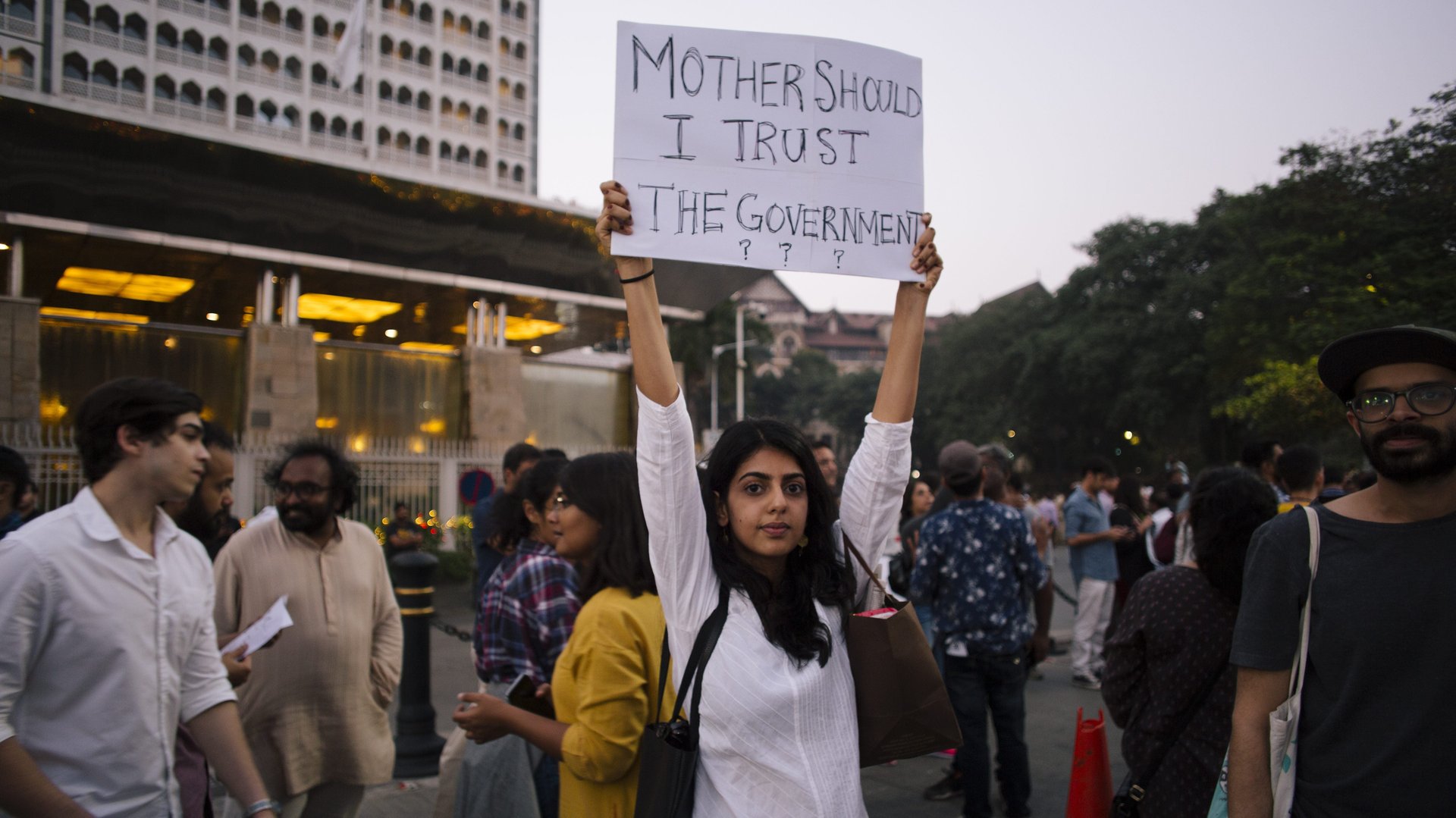As India rises in dissent, Bollywood reveals its real heroes: the women
Indian women are emerging as the torchbearers of defiance—and Bollywood isn’t far behind.


Indian women are emerging as the torchbearers of defiance—and Bollywood isn’t far behind.
Of late, a bunch of leading actors from the Hindi film industry has been conspicuous at mass protests, both on the internet and off it, against state policies in India. A few, in particular, have been more vocal than others.
For instance, after violence broke out at Jamia Millia Islamia in New Delhi last month, Swara Bhasker, a vociferous critic of the Narendra Modi government, tweeted her horror.
The Anaarkali of Aarah actor, even with a history of losing work and endorsements for her stance, has tirelessly worked with protesters in her own way. Before you are deceived into dubbing it hashtag activism, on New Year’s Day she attended protests in Delhi against a new citizenship law perceived to be unjust to Muslims.
There are others, too.
When students and teachers of Delhi’s Jawaharlal Nehru University were attacked last weekend, Sonam K Ahuja, star of movies such as Aisha and Neerja, wrote on Twitter, “Shocking disgusting and cowardly. Have the balls to at least show your face when you want to attack innocents.”
Many of them, like Richa Chadha, Taapsee Pannu, and Dia Mirza, have showed up protest events too.
Interestingly, now even the more diplomatic A-listers have begun to talk.
Alia Bhatt, among the top five Indian celebrities in terms of earnings from brand endorsements, usually stays off all things political. Following the Jamia violence, though, she shared two Instagram stories—one with the preamble to the constitution, and one plain text saying, “Learn from the students.“
Perhaps the most impressive feat of them all took place yesterday (Jan. 7) evening: Deepika Padukone, India’s highest-paid female star, was spotted with agitating students at JNU. In the capital to promote her upcoming film Chhapaak, she faced instant criticism for her move. Some dubbed her presence at JNU a marketing gimmick, others condemned her stance outright. Yet, for the most part, she was lauded. In spite of her not saying a word at the event, she may have tilted the scales in favour of the protesters by her mere presence.
“It’s so bad, even Bollywood is here!” Bhasker wrote in a series of Instagram stories hailing Padukone.
On the face of it, tinsel town’s women seem braver than their male counterparts off-screen.
Holding out for a hero
Right after Jamia and the Aligarh Muslim University (AMU) attacks, actor Sayani Gupta took to Twitter to call upon some of the industry’s most bankable leading men and moviemakers, including famed director-producer Karan Johar to speak up.
It isn’t clear if her message worked, but actors Rajkummar Rao and Ayushmann Khurrana expressed their anguish over the stirring events.
Hrithik Roshan, another movie heartthrob, tweeted his concern “as a parent and citizen of India.” Delhi boy Siddharth Malhotra expressed his disdain about the state of affairs. Vicky Kaushal labelled the incidents “both saddening and concerning.” Vikrant Massey, Padukone’s Chhapaak co-star, tweeted, “We will fight again to regain the lost sanity of this proud country 🇮🇳.” Following the JNU attack, Riteish Deshmukh tweeted “such violence cannot and should not be tolerated.”
Yet somehow, such chatter didn’t seem to muster enough power—at least not as much as the women’s voices. Firstly, some of the biggest male influencers haven’t spoken out yet. Padukone’s husband, Ranveer Singh, has been mum. Some of the biggest male stars—Amitabh Bachchan, Shah Rukh Khan, Salman Khan, Aamir Khan—haven’t said a word.
Physical presence at protest events is still a far cry for them.
Lesser-known Mohammed Zeeshan Ayyub, seen in standout roles in Raanjhana and Article 15, has done well on this front; actor-director Farhan Akhtar, too. Unfortunately, Ayyub’s reach is tiny with 80,100 followers on Twitter and 52,500 on Instagram. By comparison, Shah Rukh has nearly 40 million and 20 million respectively.
Critics argue that as mega-influencers, movie stars have some responsibility to participate in public debate. Filmmaker Anurag Kashyap, ever vocal on issues, alongside other directors like Anubhav Sinha and Vishal Bharadwaj, said, “It makes me angry to see voices that can actually make a difference stay quiet.”
However, to be fair, Bollywood celebrities have had a history of being targeted—both personally and professionally—for taking political stands.
That perhaps makes for the most accurate argument on behalf of the silent lot: “Damned if you do, damned if you don’t.”
We welcome your comments at [email protected].